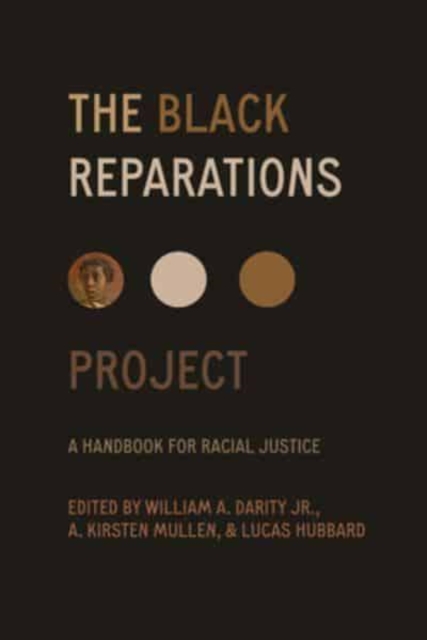
The Black Reparations Project : A Handbook for Racial Justice
Darity, William, Mullen, A. Kirsten, Hubbard, Lucas More by this author...£21.00This groundbreaking resource moves us from theory to action with a practical plan for reparations. A surge in interest in black reparations is taking place in America on a scale not seen since the Reconstruction Era. The Black Reparations Project gathers an accomplished interdisciplinary team of scholars--members of the Reparations Planning Committee--who have considered the issues pertinent to making reparations happen.
This book will be an essential resource in the national conversation going forward. The first section of The Black Reparations Project crystallizes the rationale for reparations, cataloguing centuries of racial repression, discrimination, violence, mass incarceration, and the immense black-white wealth gap. Drawing on the contributors' expertise in economics, history, law, public policy, public health, and education, the second section unfurls direct guidance for building and implementing a reparations program, including draft legislation that addresses how the program should be financed and how claimants can be identified and compensated. Rigorous and comprehensive, The Black Reparations Project will motivate, guide, and speed the final leg of the journey for justice.
This book is the first, comprehensive blueprint for Black reparations in America—moving from rationale to action with a groundbreaking and practical plan.
The current racial wealth gap—in which African Americans, who make up 13 per cent of the national population, hold only 3 per cent of national wealth—can be traced to a series of government policies that denied economic opportunity to African Americans and provided opportunities to many white Americans. William "Sandy" Darity Jr., arguably the most well-known expert on the economics of reparations, puts it best: “Reparations for Black American descendants of slavery in the United States is something that is fully justified and morally required,” and “the fact that we may still be in a moment where the odds of it occurring appear to be low, that’s not a reason to not be engaged in the struggle to make it happen.” A few years ago, Darity created a Reparations Planning Committee in order to flesh out the details of how the U.S. might execute a reparations program. The group includes an economic historian, a genealogist who specializes in African American history, and other prominent experts and public servants in law, public policy, history, and education who study issues of inequality and race in America. They set themselves the task of figuring out who would get reparations and how much it would cost. This book is the fruit of their labor, and their public-facing push to make reparations a reality. The Black Reparations Project provides a wide-ranging and emphatic analysis of racial inequality in America, arising from centuries of racial repression, and details a rigorous and workable plan to make Black Reparations happen.
The first section of The Black Reparations Project crystallizes the rationale for reparations, cataloguing centuries of racial repression, discrimination, violence, mass incarceration, and the immense black-white wealth gap. Drawing on the contributors’ expertise in economics, history, law, public policy, public health, and education, the second section unfurls direct guidance for building and implementing a reparations program, including draft legislation that addresses how the program should be financed and how claimants can be identified and compensated. Rigorous and comprehensive, The Black Reparations Project will be an essential resource in the national conversation going forward.